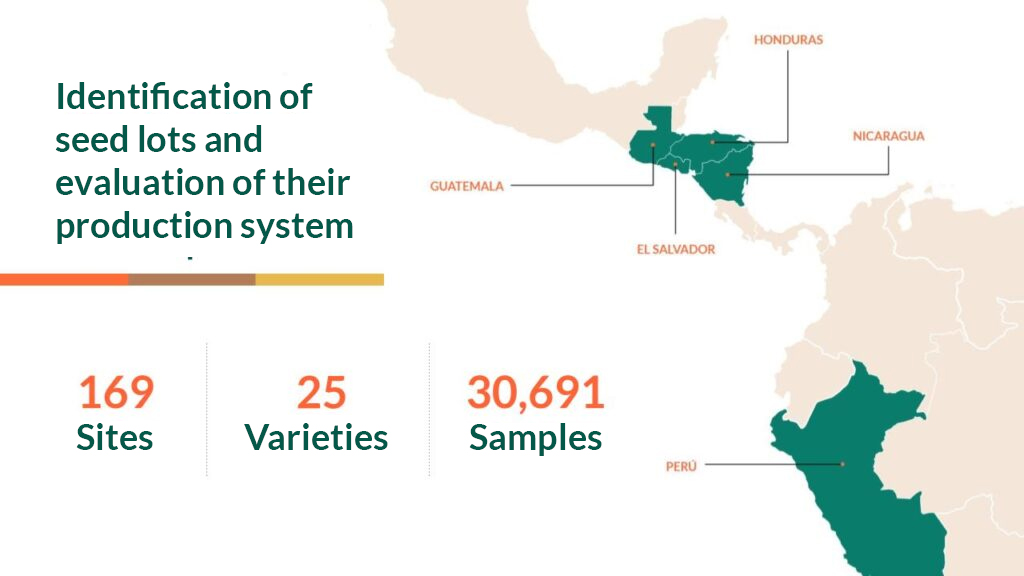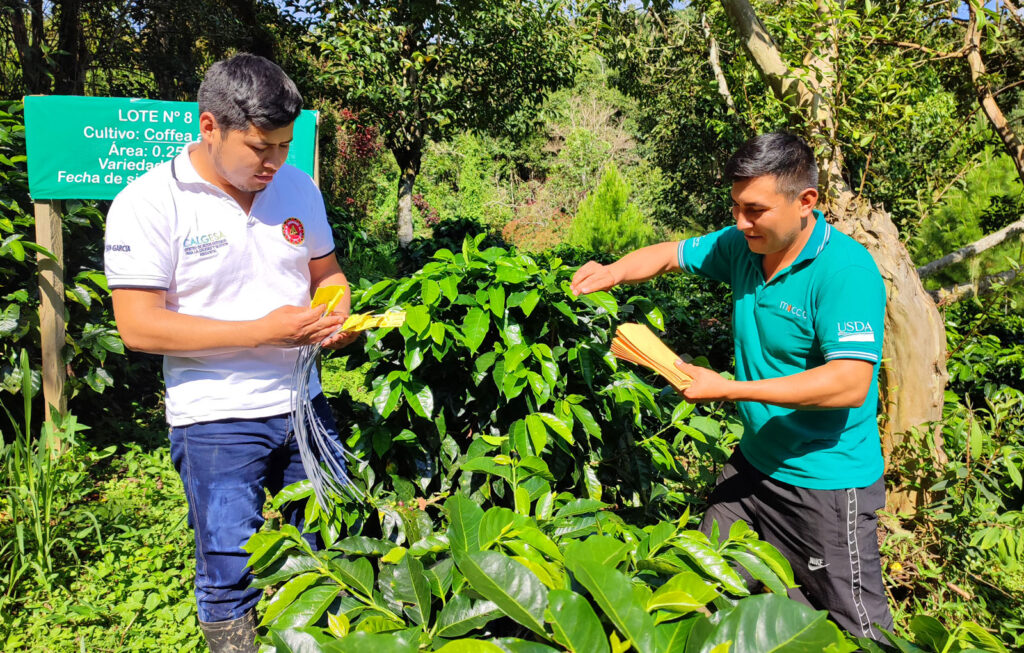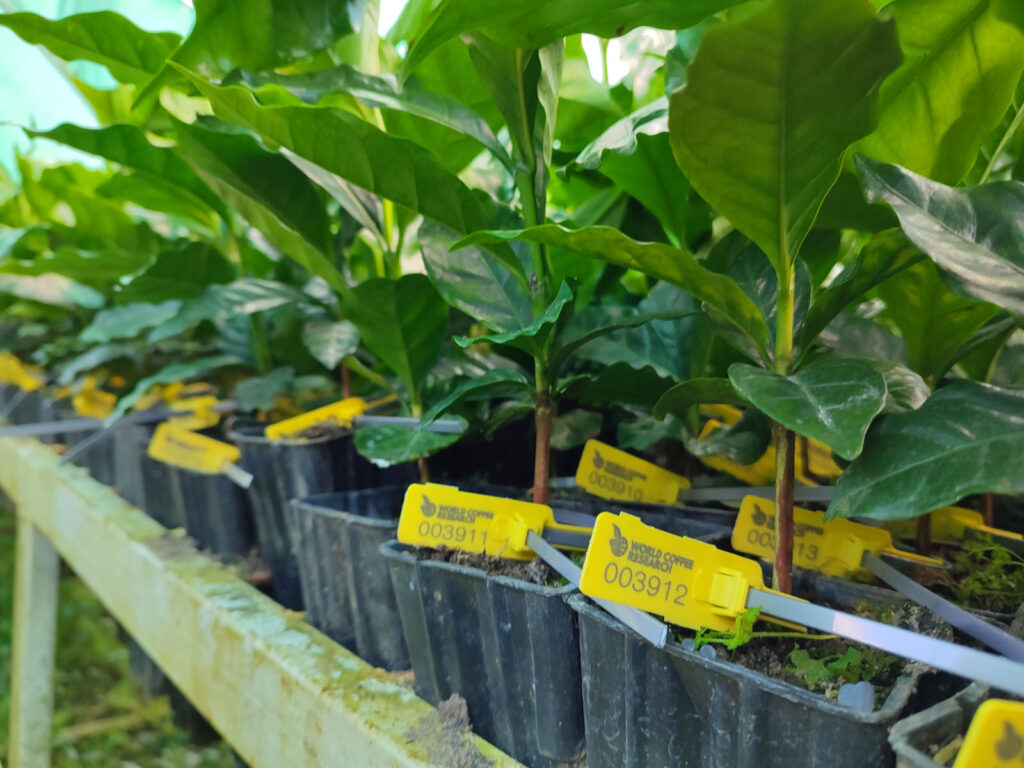- The study aims to reduce the coffee grower’s risk, determining the genetic purity of the main suppliers of planting material in the region and guaranteeing the implementation of good seed production practices.
MOCCA is a 7-year initiative funded by the United States Department of Agriculture (USDA) through its Food for Progress Program, which seeks to improve agricultural productivity and expand trade in agricultural products. The MOCCA project is being executed by a consortium led by TechnoServe.
One of the essential, and largely invisible, problems facing the coffee industry is the lack of a formal coffee seed sector. When it comes time to plant a new tree, culturally coffee farmers produce new plants from seeds collected from their own fields or from neighbors, or perhaps obtain them from small local nurseries who in turn obtained the seed locally in their community. The phytosanitary quality and genetic purity of these plants is often not optimal, and these low-quality plants usually then have reduced yields throughout their useful life, representing a great risk for the producer.
Given this scenario, the MOCCA program carried out a study with the purpose of evaluating the quality of seeds available to coffee producers in the region. To this end, between 2020 and 2023, 30,691 leaf samples were taken in 169 seed and plant production sites in: Guatemala, Honduras, El Salvador, Nicaragua and Peru, with the purpose of determining the genetic purity of the varieties in a batch of seeds and evaluate the implementation of good seed production practices in the plots.

The study was presented through an online forum, in which researchers from World Coffee Research (WCR), leader of MOCCA’s coffee research component, detailed findings and recommendations.
The results of the DNA analyzes indicate that in around 57% of the seed lots sampled there is less than 50% genetic conformity, that is, less than half of the plants on the site correspond to the variety that the producer thought he had.

Lack of specialized technical assistance for seed producers

Through the study it was found that although the seed and nursery growers have received technical support, it does not correspond to specialized advice for seed production and agronomic practices focused on a management plan for viable embryos in the seeds. The difference from a seed production operation is that they apply a series of good practices not only to ensure the viability of the embryo within the seed, but also to ensure that there is traceability of its origin and that the risks of mix or “contaminate” with other seeds.
In this sense, MOCCA, through the WCR, carried out a series of field visits to collect information on the quality of the seed currently available on the market. Formal and informal seed sources were visited and the owners of the plots were interviewed about their traceability practices, as well as the management of their plantations and finally, leaf samples were collected to perform a DNA analysis through the use of SNP markers such as a tool for quality control to determine (or not) the genotypic conformity between the samples collected from the seed lot and the possible opportunities for improvement in terms of the implementation of good seed production practices.
Additionally, during 2023, information was collected directly from the owners of the seed lots to identify opportunities for improvement in their production systems.
The tasks included in this activity were the following:
- Identification of seed lots.
- Visit to the site, visual evaluation of the same, survey of the producer and sampling of leaves on the plants in the lot.
- Preparation of samples (entering the plates, drying, documentation, etc.).
- Sending samples and DNA analysis in the laboratory.
- Communication of results.

For more information, we invite you to download the executive summary Seed lots and nurseries: Identification and evaluation of your production system | Nicaragua, Honduras, El Salvador, Guatemala and Peru.
If you are a coffee seed producer, we invite you to download the guides on good practices in the management of coffee seedbeds and nurseries in our resources section.







